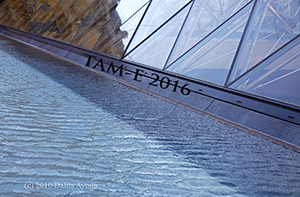The fact that non-finite constructions and evidentiality are related has been observed and analysed in various European languages (Gronemeyer 1997; Noël 2001; Wiemer 2006; Holvoet 2007; Boye and Harder 2009; Noël and Coleman 2010; Lavine 2010; Ørsnes 2011). The common use of passive matrix verbs with the infinitive (the so-called NCI) in English and the corresponding though much less productive pattern in Dutch, reportive passives in Danish, and evidential participle constructions in Lithuanian have all received much attention in the literature. The present paper is devoted to the study of the less well studied grammatical realization of indirect evidentiality in Lithuanian, namely the construction traditionally called Accusativus cum Participio (AcumP). In contemporary Lithuanian, it is only found in the complementation of communication, cognition and perception (CCP) verbs, e.g.:
(1) <...> Aleksandras pasiekė Vengriją, Budapeštą,
‘Alexander reached Hungary, Budapest'
kur girdėjo esant tėvą.
where hear.pst.3 be.nagr.prs.ptcp father.acc
‘where rumour has it his father was.'
The purpose of the analysis is to show that the use of non-finite non-agreeing participial be-verb forms (esant/besant/tebesant-present, buvus-past, būsiant-future) is obligatory and crucial for the complement phrase to have a propositional status. In this respect the use of the non-agreeing participle can be compared to the obligatory use of the full infinitive to be with raising verbs in English (He seems to be away; I believe him to be happy). The synsemantic function of the non-finite forms of the verb be in both languages is identical: they mark a proposition, the indirectness of its mental perception, and the author's source of information (Borkin 1973; Dik and Hengeveld 1991; Duffley 1992; Usoniene 2000; Verspoor 2000).
The analysis of the Lithuanian data is corpus-based, and both quantitative and qualitative methodologies are used to investigate the distribution of the construction in different types of discourse (fiction, academic and journalistic). The analysis will be set in the framework of a typological comparison of similar uses of non-finite verb forms in other European languages.

 PDF version
PDF version
